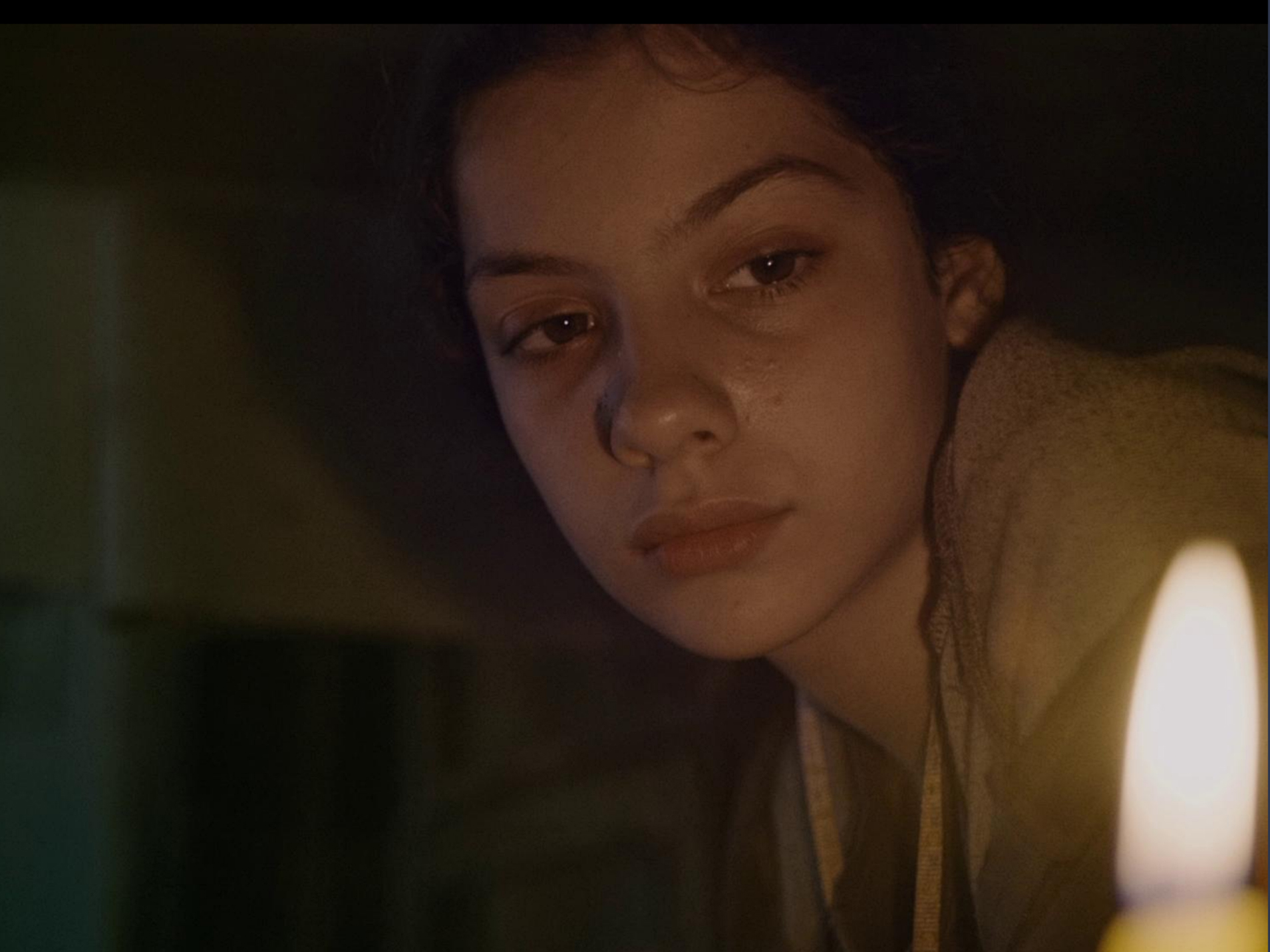
- Golden Globe Awards
Darkling (Serbia)
“Dear Mr. President, I am sitting under the table, it is pitch dark and I am terrified. Even if I light a candle, there would not be enough light. Everything would remain in darkness,” says the voiceover of the young girl Milica (Milona Ilov) at the start of Darkling. She is on a school assignment to write a letter to the United Nations on her experiences in postwar Kosovo, which is occupied by NATO forces, and we are introduced to her as she is surrounded by darkness in her home.
The worn-down house is barricaded by her grandfather Milutin (Slavko Štimac) and mother Vukica (Danica Ćurčić) in order to keep the enemy out. Most of the village has left, but her grandfather refuses to accept that his sons Jovan and Stevan are not simply missing but have been killed in the war: he wants to stay behind to wait for them to return in spite of the hardship his daughter-in-law and her young daughter are going through.
“I am not leaving this place till they come back,” he insists as Milica continues to write her letter and begs for someone to listen and help her find her missing father. As the friendly Italian soldiers are replaced by Americans, the ride to school which the six remaining school kids get every day becomes less joyful, and as the film progresses, it becomes obvious that there is no way in which staying in the former war zone is an option for the family.
The family will be displaced like so many before them. They are victims of a horrific war that has left them without a home and without the sons, husbands and fathers they loved, and with no one to report on it. The closing titles remind us that more than 4000 ethnic Serbs were expelled from Kosovo and Metohija and that many of the missing casualties have never been found.
Darkling is Serbian director Dušan Milić’s fourth feature film.